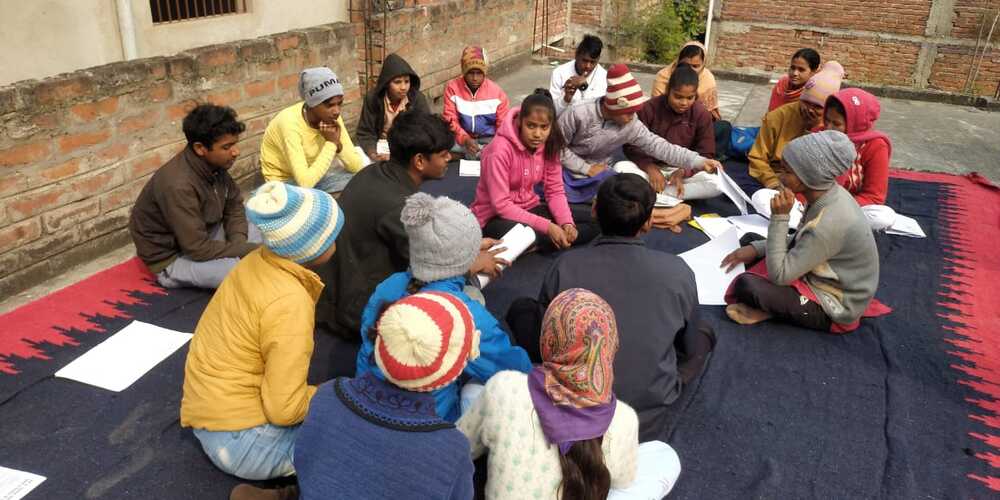Latest
FACT CHECK: Is the ‘7-Day No Food Challenge’ a safe weight loss method?
A viral video promises dramatic weight loss without food—but what’s the science behind it?
Author

Sneha Richhariya is a reporter based in New Delhi, India. Her work focuses on health, environment and gender. She is the recipient of UN Laadli Media Award 2024 and Human Rights and Religious Freedom (HRRF) Award 2023. She has received fellowships from Internews Earth Journalism Network, Health Systems Transformation Platform (HSTP), Deutsche Welle Hindi, Report for the World and National Coalition for Natural Farming (NCNF). She has written for organisations like Deutsche Welle, Scroll, Mongabay India, South China Morning Post (SCMP), Newslaundry, Himal Southasian, The Third Pole, The Quint, IndiaSpend and Article 14.
View all posts
Author

Sneha Richhariya is a reporter based in New Delhi, India. Her work focuses on health, environment and gender. She is the recipient of UN Laadli Media Award 2024 and Human Rights and Religious Freedom (HRRF) Award 2023. She has received fellowships from Internews Earth Journalism Network, Health Systems Transformation Platform (HSTP), Deutsche Welle Hindi, Report for the World and National Coalition for Natural Farming (NCNF). She has written for organisations like Deutsche Welle, Scroll, Mongabay India, South China Morning Post (SCMP), Newslaundry, Himal Southasian, The Third Pole, The Quint, IndiaSpend and Article 14.
View all posts
- admin / 39 minutes

- 0
- 4 min read

Author

Sneha Richhariya is a reporter based in New Delhi, India. Her work focuses on health, environment and gender. She is the recipient of UN Laadli Media Award 2024 and Human Rights and Religious Freedom (HRRF) Award 2023. She has received fellowships from Internews Earth Journalism Network, Health Systems Transformation Platform (HSTP), Deutsche Welle Hindi, Report for the World and National Coalition for Natural Farming (NCNF). She has written for organisations like Deutsche Welle, Scroll, Mongabay India, South China Morning Post (SCMP), Newslaundry, Himal Southasian, The Third Pole, The Quint, IndiaSpend and Article 14.
View all posts
CLAIM: “7-day no food weight loss challenge” can help you lose up to 10 kgs in just 7 days
FACT: False. The “7 Days No Food Weight Loss Challenge,” claiming 10 kg weight loss in seven days is dangerous, unscientific, and unsustainable, risking severe health issues like electrolyte imbalances and organ damage, with weight loss primarily from water and muscle, not fat.
First Check came across an Instagram reel by where a health influencer promotes a “7 Days No Food Weight Loss Challenge,” claiming it can lead to rapid weight loss of up to 10 kilograms.
The creator, alongside another person posing with gym equipment, dismisses exercise as ineffective.
“Honestly, tell me, has running reduced your belly fat? Has all this exercise helped you lose even a little weight? No, it hasn’t. So why are you doing it?” she says.blaming trainers for misleading advice. “The trainer told you to do it. Forget the trainer.”
This instagram account has one million followers and garners thousands of views.
The creator outlines four steps for her challenge: “First, you must not eat anything for seven days. Second, you need to drink four liters of water daily. Third, get eight hours of good sleep. Fourth, you can have water, salted water, lemon water, black coffee, or black tea.”
She continues: “If you’re ready to take on this 7 Days No Food Challenge, I can easily help you lose up to 10 kilos in just seven days.”
In another similar video, she showcases two women who allegedly lost weight through the challenge.
“This is the result of the 7 Days No Food Challenge, which leads to tremendous weight loss, significant inch loss, glowing skin, and cures all diseases,” she says.
She reiterates her promise: “I can help you lose up to 10 kilos in seven days.”
Is this approach to weight loss safe? We investigate
We spoke to Dt. Suhyla Manzoor, senior dietitian at Fitelo, a healthtech company, who strongly advised against the challenge, calling it “extremely dangerous, unscientific, and potentially life-threatening.”
She explained that while a person might lose weight, potentially up to 7 kg, during the seven-day fast, he might regain it fast.
“When he/she will be back to normal routine and start eating some foods, it will bounce back the weight,” she said.
This rapid regain is due to the loss being primarily water and muscle, not fat, as supported by existing studies.
Manzoor warned of severe health risks like electrolyte imbalance, edema, BP issues, nerve damage, or organ damage issues.
Studies also discourage starvation as a to weight loss.
”Prolonged fasting is also a condition that increases the body’s acid load. After just 48 hours of fasting, the body goes into a state of mild metabolic acidosis, a condition in which acids build up in your body, a 2021 study notes.
The US National Academies of Sciences, Engineering, and Medicine determined that an adequate daily fluid intake is about 15.5 cups (3.7 liters) of fluids a day for men and about 11.5 cups (2.7 liters) of fluids a day for women.
However, the video recommends four liters of water daily, which exceeds standard guidelines, risking water intoxication without proper electrolyte balance.
Manzoor emphasizes that sleep and water are necessary for health. “But without calories, your brain and organs do not have the fuel they need to function properly,” she said.
The claim that exercise is ineffective is also baseless. Research suggests that exercise plays a vital role in weight loss.
“Eat a balanced diet, stay hydrated, get good sleep, and walk at least 10k steps daily. That is enough for weight loss,” Manzoor said.
Also read: Oxford: Weight-Loss Injections May Require Lifelong Use
Do you have a health-related claim that you would like us to fact-check? Send it to us, and we will fact-check it for you! You can send it on WhatsApp at +91-9311223141, mail us at hello@firstcheck.in, or click here to submit it online.
Author

Sneha Richhariya is a reporter based in New Delhi, India. Her work focuses on health, environment and gender. She is the recipient of UN Laadli Media Award 2024 and Human Rights and Religious Freedom (HRRF) Award 2023. She has received fellowships from Internews Earth Journalism Network, Health Systems Transformation Platform (HSTP), Deutsche Welle Hindi, Report for the World and National Coalition for Natural Farming (NCNF). She has written for organisations like Deutsche Welle, Scroll, Mongabay India, South China Morning Post (SCMP), Newslaundry, Himal Southasian, The Third Pole, The Quint, IndiaSpend and Article 14.
View all posts










